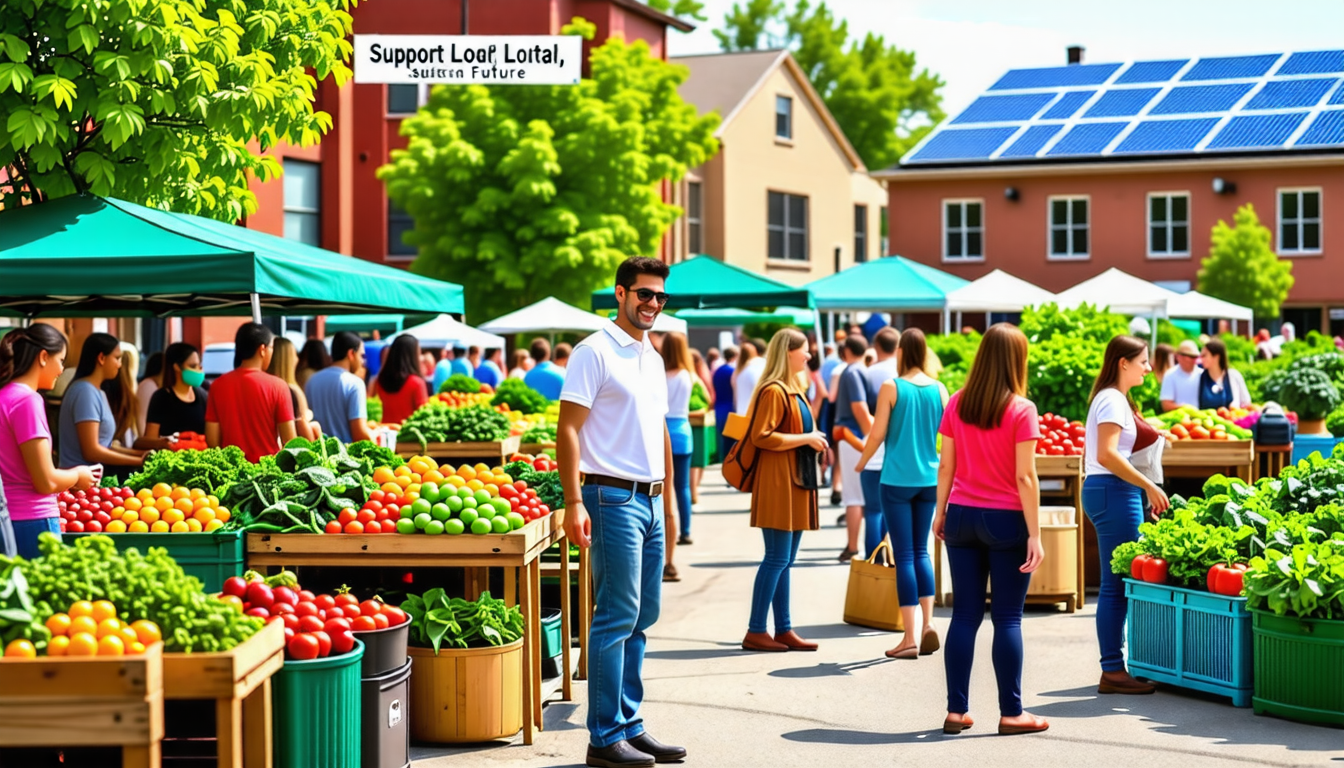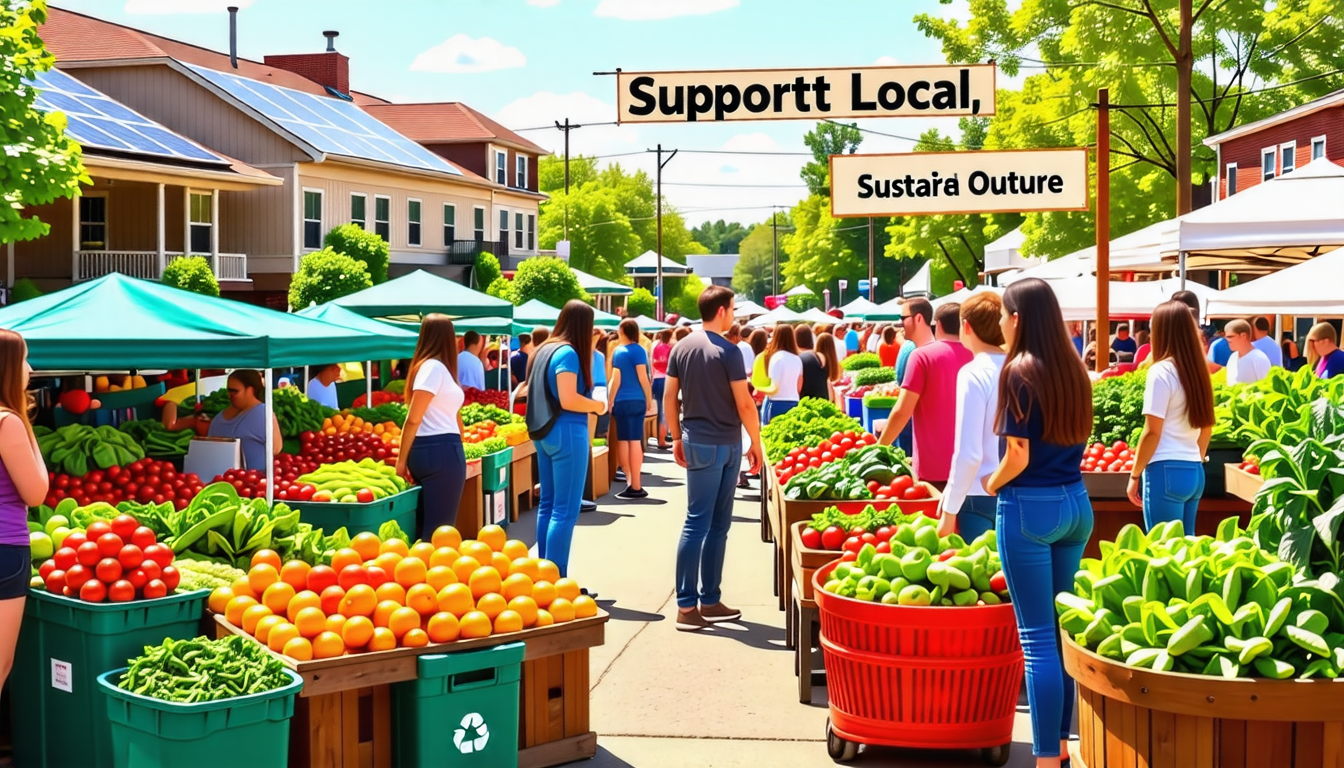|
IN BRIEF
|
In an era where the challenges of climate change and economic instability loom large, community economy initiatives emerge as beacons of hope, illuminating the path to a sustainable future. By weaving together the aspirations and strengths of local residents, these initiatives cultivate a fertile ground for resilience and growth. Imagine neighborhoods bustling with local markets, workshops igniting entrepreneurial spirit, and vibrant public spaces promoting social cohesion and collaboration. These grassroots movements not only nurture economic strength but also empower citizens to become stewards of their environment. When communities rally together, we unlock the potential for transformative change, turning vulnerability into vitality and fostering a profound sense of ownership. Join us as we delve into the heart of sustainable development, exploring the innovations that breathe life into our neighborhoods and create a lasting impact.

In a world increasingly affected by climate change and socio-economic challenges, the significance of community-led efforts cannot be overstated. These initiatives pave the way for building substantial resilience and sustainability at the local level. By engaging individuals and leveraging unique community strengths, these initiatives respond effectively to distinct local needs.
Conclusion: A Collective Path Forward
Ultimately, the effectiveness of community economy initiatives in fostering local resilience and sustainability hinges on collective involvement, cooperation, and tailored strategies. Through thoughtful engagement and innovative practices, communities can unite to create robust solutions, fortifying themselves against the uncertainties of the future.
The Role of Local Leadership
Local leaders play a pivotal role in galvanizing community efforts. Their connection to the community fosters trust and encourages participation in resilience-building initiatives. This authentic engagement not only equips residents to face immediate challenges but also promotes a strong sense of ownership and responsibility towards their shared environment.
Understanding Community Economy Initiatives
Community economy initiatives play a critical role in fostering local resilience and sustainability. At their core, these initiatives harness local resources and talents to build a robust economic foundation, which in turn strengthens community ties. By focusing on grassroots efforts, communities can create networks that empower each member. This is achieved through cooperative models that encourage shared investments, enabling collective financial success and sustainable growth, as outlined in various resources like the Cooperative Investment Strategies.
Moreover, these initiatives are designed to withstand economic shocks and promote adaptability. They advocate for the development of localized supply chains and support for small businesses, which inherently enhances the community’s economic resilience. By organizing local events, workshops, and educational programs, community economy initiatives not only elevate local awareness but also drive participation, ensuring everyone has a stake in the well-being of their surroundings. The Leading the Way framework emphasizes the importance of creating inclusive spaces where everyone feels connected and involved.
Building Strong Foundations for the Future
As these community-driven movements gain traction, the emphasis on sustainability becomes evident. Communities that adopt eco-friendly practices can unlock a myriad of health, economic, and social benefits, aligning with broader goals of ecological stewardship. This approach, highlighted by the New Economic Development Report, suggests that a harmonious relationship between economic development and environmental responsibility is essential for long-term success. Thus, community economy initiatives not only pave the way for economic stability but also create a welcoming environment where both people and the planet flourish.

In an ever-evolving world, community economy initiatives act as vital catalysts for enhancing local resilience and promoting sustainability. By focusing on grassroots approaches, these initiatives not only empower residents but also cultivate a profound sense of unity and collaboration. Local events and educational programs serve as platforms for sharing knowledge, thereby nurturing economic resilience that can weather the storms of disruption and uncertainty. Moreover, the integration of sustainable practices creates a ripple effect, leading to improved health, economic stability, and social cohesion. As communities harness their unique strengths and work together, they build a foundation that not only sustains their environment but also paves the way for a robust future, capable of overcoming any challenges that may arise.
Frequently Asked Questions
Community economy initiatives are collaborative efforts aimed at enhancing the economic strength of local communities while promoting sustainability and resilience.
These initiatives build a strong foundation for local economies, helping them to withstand economic shocks and promote recovery through community engagement and local resources.
Sustainability is a core focus, ensuring that economic development meets present needs without compromising future generations, promoting environmental stewardship and resource management.
Anyone can participate, including community members, local businesses, non-profits, and government entities, all working together towards a common goal of fostering resilience.
Successful initiatives often include community gardens, local currency systems, cooperative ventures, and educational workshops that enhance skills and knowledge.
You can get involved by attending local meetings, volunteering your time, or starting a conversation about economic resilience in your community.
They enhance local economic health, foster social connections, improve environmental outcomes, and empower communities to make collective decisions that benefit everyone.
These initiatives encourage practices that protect natural resources, promote local businesses, and prepare communities to adapt to changing environmental and economic conditions.
